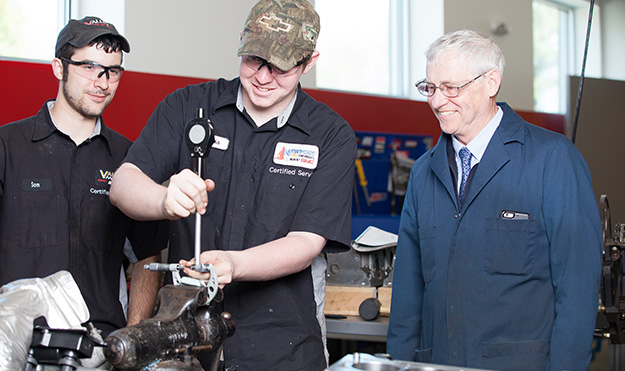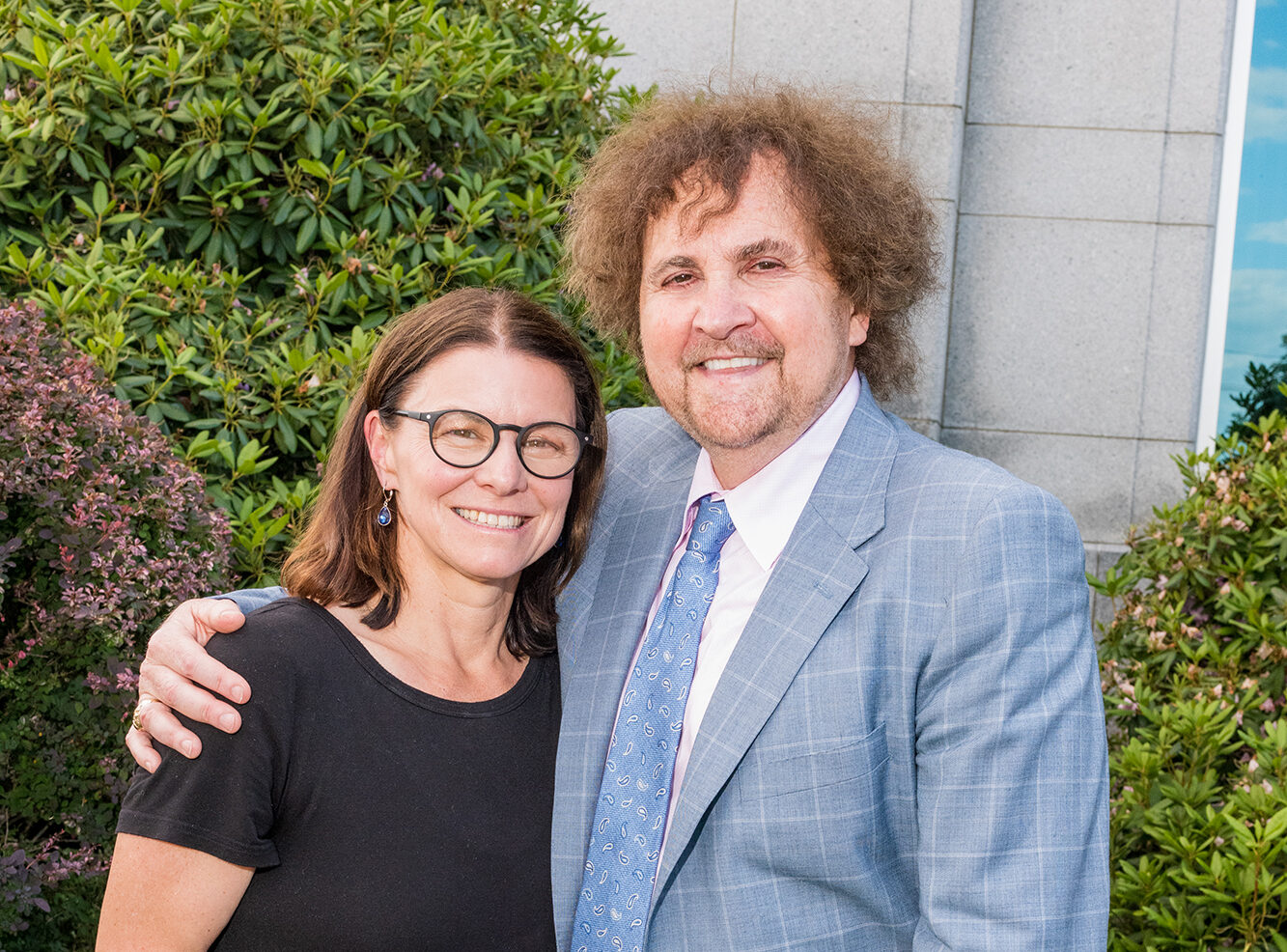Mike Parker has always been a car guy. From his youth working on unique British cars to becoming a master technician and then bringing these skills into the Lakes Region Community College (LRCC) classroom, the automobile has been the engine that drove his career.
The recently retired former professor and chair of the LRCC Automotive Technology Program spent 27 years in the classroom and under the hood, helping hundreds of students launch lucrative careers. But retirement is not stopping him from supporting students who want to turn their love of the automobile into a career.
Mike and his wife, Betty, discussed the idea of giving to LRCC and decided on a bequest to provide financial support to LRCC students interested in automotive technology.
“Lakes Region Community College has been very good to us, and I would not have been able to retire without that experience. I am very grateful for the graduates who express how much they appreciate me and the program and how much they received from their college experience. We want to support future students.”
The Parkers worked closely with their professional advisor and The Foundation for NH Community Colleges to ensure the documentation and language for this bequest were recorded.
When Mike was at Stevens High School in Claremont, he worked for his brother-in-law, who owned a small repair shop specializing in British imports. As a result, he worked on some unique and finicky models, including MGs, Jaguars, Rovers, Triumphs and Holdens. However, his first car was all American – a 1957 Ford Fairlane that he bought for $75, drove for a few years and then sold for $50.
“I wish I kept it.”
After high school, he spent 20 years working as a technician. He became a Saab and General Motors (GM) Master Technician while working at Crest Chevrolet in North Conway and Forest City Chevrolet in Portland, Maine.
Saabs had their quirks with the free-wheeling coasting on the model 96s and the engine sitting backward under the hood of the model 99s and 900s, which allowed clutch removal without removing the transmission. His favorite was the Saab 900 Turbo, one of the first turbocharged cars that hit the market in 1978.
“It was wonderfully reliable, easy to service and repair. The 900s handled great and were a lot of fun to drive, especially on curvy mountainous roads like the Kancamagus Highway.”
He also credits the Saab for getting him into the classroom.
“Taking some of the classes at the Saab training center inspired me to teach because the instructors that I had were so good.”
Mike took evening classes and graduated from Granite State College while working as a technician. During that time, a position at LRCC opened in the new GM program.
“It was a good fit for me because of my experience and training as a GM Master Technician.”
He began teaching full-time at LRCC in 1991. He recalled those early years as challenging, fun and time-consuming as he worked with colleagues to grow and enhance the program.
“The instructors wrote the training material because the published content was incomplete. We also did a ton of curriculum development as products changed. It was a gratifying teaching experience.”
He learned a lot teaching for nearly three decades and witnessing significant changes in automotive technology. But the most valuable takeaways were seeing how the college impacted people’s lives and how students grew personally and professionally as they moved from students to technicians and business owners.
“The college provides so much to the state’s economy. In most cases, students are working while attending school and paying off debt as they go. I watch my graduates now. They are raising families, buying homes – and some have started their own businesses.”
One of his former students is Jamie Decato. He had a successful career as a technician and stayed in close contact with Mike. When an opening came at LRCC, Jamie jumped at the chance to teach. Upon Mike’s retirement, Jamie became the program chair.
Mike worked tirelessly to grow the nationally-recognized GM Automotive Services Education Program (ASAP). This 21-month cooperative program allows students to alternate between classroom training and hands-on work at a sponsoring GM dealership. Upon completion, students receive an Associate in Applied Science degree in Automotive Technology and credits toward GM Master Certification. Job placement rates for graduates are nearly 100%.
In 2018, Mike brought a similar partnership with Toyota to LRCC. These are the only programs in Northern New England to fill the needs of Toyota and GM dealerships in the region.
Mike credits the staff at LRCC for making it a special place to work and study.
“They are very professional – from support staff to other professors – and are dedicated to student success. It sounds cliché, but it is absolutely true.”
Mike plans to stay in touch with the college as a member of the automotive technology advisory committee and keeps in touch with students through Facebook.
Now truly retired, Mike concentrates on his family and fishing. However, his legacy will endure, enabling students to launch careers with minimal debt and be part of technological advances.
LRCC President Larissa Baia expressed gratitude for the Parker’s bequest. “We are so very thankful they chose to remember the college in their estate plans. One of our primary goals is to ensure our students have access to high-level educational opportunities in the Lakes Region and this generous gift will help us tremendously in our efforts.”
For more information about how you can establish a legacy fund at your community college, please contact Tim Allison tallison@ccsnh.edu or 603-230-3520.



